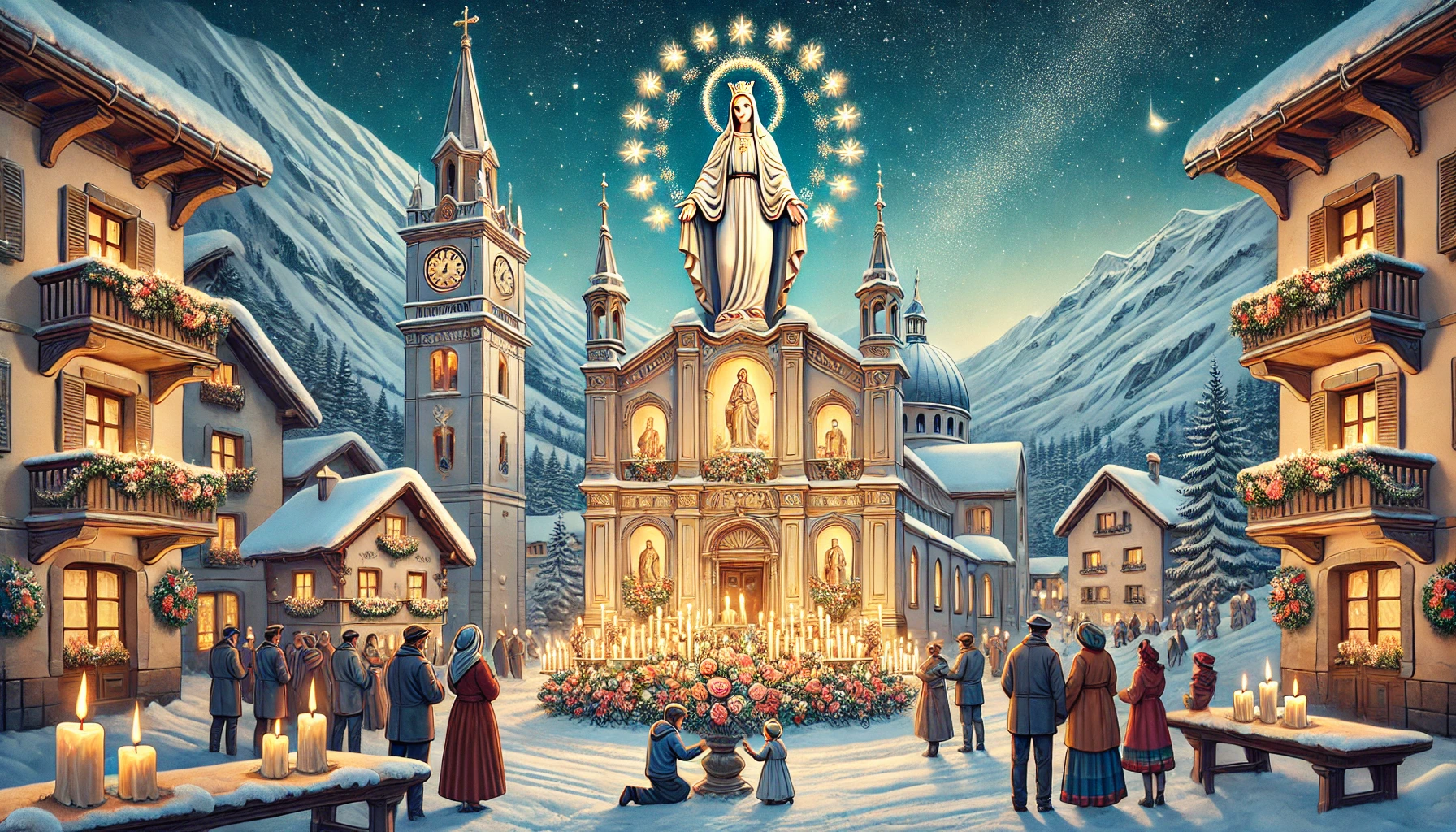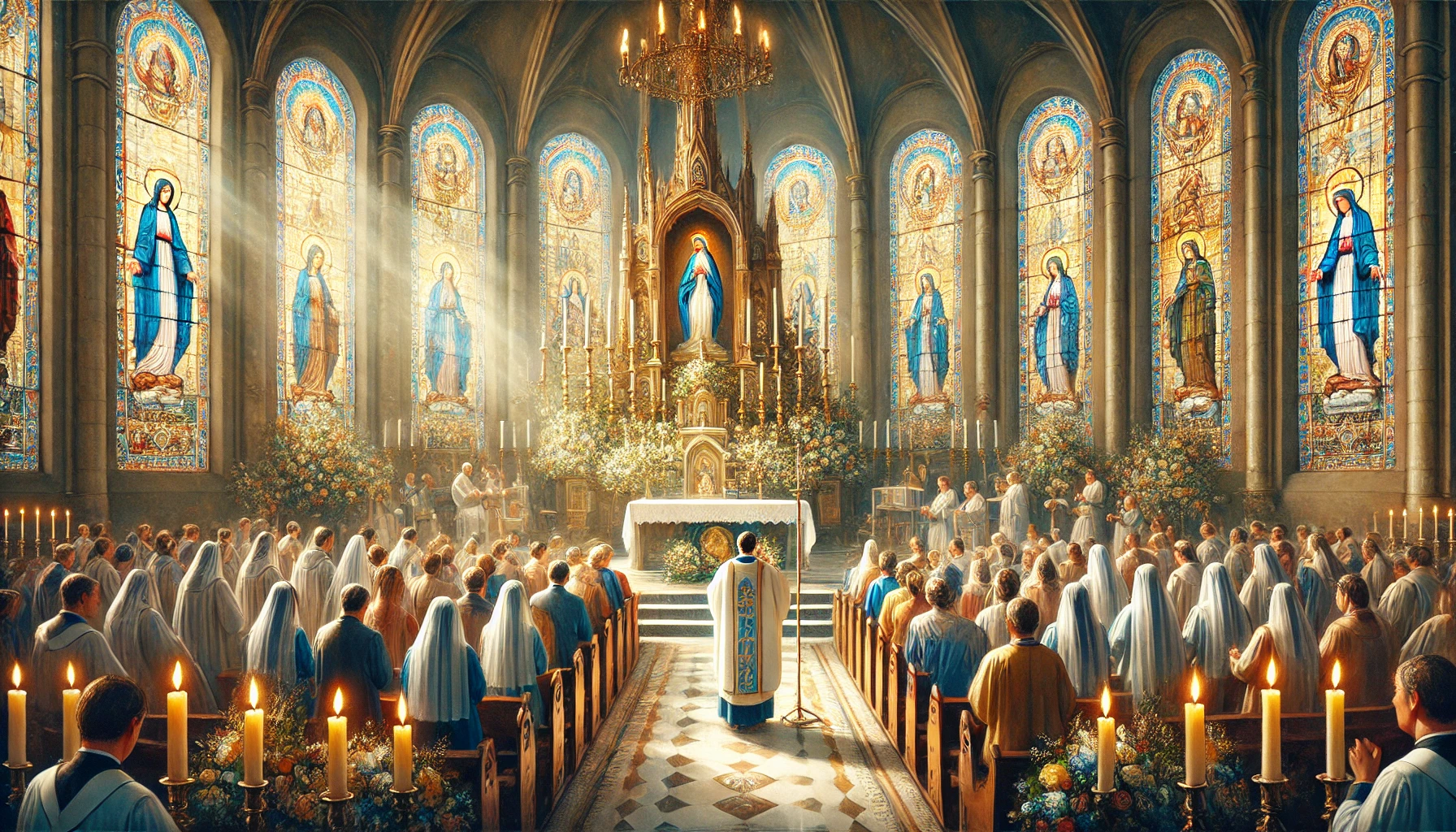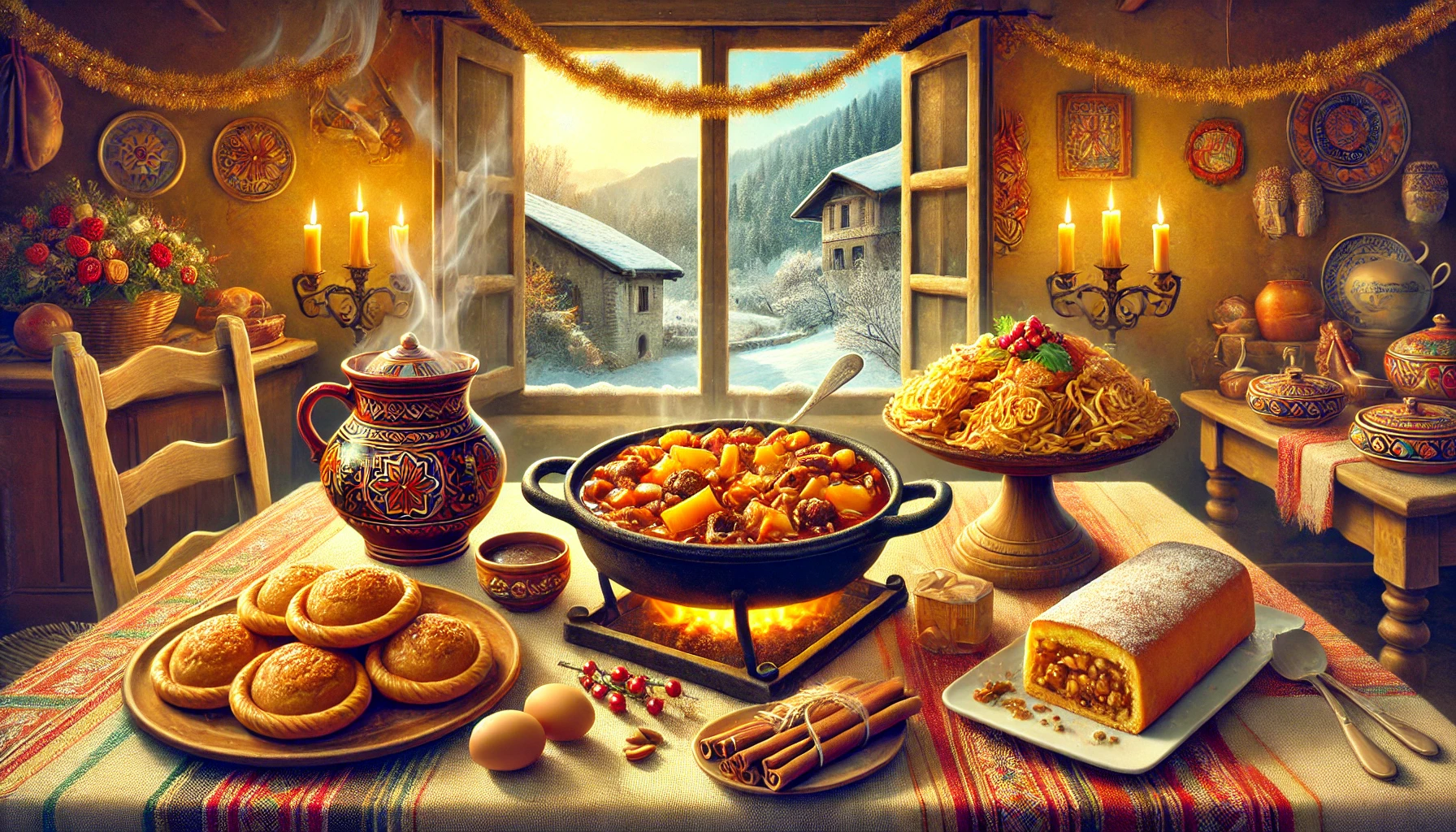Immaculate Conception Day in Andorra
Use our holiday API to get the exact date of Immaculate Conception Day in Andorra in every year.
Immaculate Conception Day in Andorra: A Day of Reverence and Celebration

A diaclasic Catholiced holiday, the Day of the Immaculate Conception (Dia de la Immaculada in Catalan), is ny Andorra celebrated on every December 8th. This solemn day commemorates the Immaculate Conception of Virgin Mary, considered an article of faith in Catholicism, and is a time for reflection and celebration all over the country. Special church services, family reunions, and revelries in public are what considers this date.
Without further ado, inline expectation in this article, what is the Immaculate Conception, how Andorra celebrates it, the tradition related to it, and the fate of public institutions on this great holiday.
What is Immaculate Conception?
The Immaculate Conception is defined by Pope Pius IX within the Catholic Church as being Mary, Virgin, conceived without original sin. Defined by the whole Catholic Church as being, singularly, in the year 1854, it relates to the purity, having its unique importance for the mother of Jesus Christ. The feast of the First Conception commemorates sinless conception and places Mary as one of the central figures in the story of salvation.
Oftentimes, the Virgin Birth may, however, be confused by this with the fact that it has to do with giving birth to Jesus. Precisely, it is intended to celebrate the conception of Mary herself, making it a unique and very pointed event in the calendar of the Catholic Church.
When is Immaculate Conception Day Celebrated?

December 8 marks the day on which the Immaculate Conception is commemorated every year. It is this fixed date that does not change from year to year, thus making it a constant part of the thrumming pulse of the Catholic religious calendar in Andorra and other predominantly Catholic countries across the world.
What Are the Traditions of Immaculate Conception Day in Andorra?
Religious Services
In churches throughout Andorra, Mass is celebrated on December 8 for the Immaculate Conception. These masses, which are replete with readings from the Bible, prayers, and hymns in honor of the Virgin Mary, form the substance of the day's celebrations.
Sacerdotal celebration on the theme of Mary's purity, this liturgy will dwell on the extraordinary role of this Blessed Virgin within the Catholic faith, and many Andorrans will attend out of devotion. The Immaculate Conception Mass is usually quite solemn, and the church would be beautifully decorated by both flowers and images of Mary, to remind everyone of the great importance of the feast.
Is Immaculate Conception Day a Bank Holiday for Schools and Museums?
Most public establishments and businesses are closed on this day because it is a public holiday in Andorra. Here is what you can expect:
- Banks: Closed;
- Schools: Closed for the holiday;
- Government Offices: Closed;
- Museums and Cultural Centers: Most museums close, although some may display special holiday features;
Shops may be open with limited opening hours but generally, this is a day of rest and reflection with individuals usually spending it with their families or in church.
The History of Immaculate Conception Day in Andorra
Inception of the Celebration
The Feast of the Immaculate Conception has been celebrated for many hundreds of years in the Catholic Church but was made an official dogma in 1854 by Pope Pius IX. Through this proclamation, the papal affirmation brought with it a doctrine that involved the conception of Virgin Mary without original sin, placing her exclusively in relationship with what the Church believes on salvation and grace.
Moreover, the date would ever be so much molded as an essential component of religious life in the Catholic world, Andorra added, where a devotion to the Virgin Mary occupies a distinguished representation in the spiritual life of its people. Over the years, it has developed as both an event and a cultural celebration-in joyfulness, commemorating its great deal of reverence.
The Immaculate Conception in Andorra
Immaculate Conception is one of the most revered events that an Andorran celebrates. The impoverished Andorran population being largely Catholic from the moment brackets in the religious festivities by which dwellers customarily fill the churches on the 8th of December, are no exception in observing this day with high devotion, and its observances reflect the national dedication to its faith.
The Immaculate Conception is the Andorran moment to end preparations for the festive season. Reminding the faithful that the time is ripe for reminding themselves of Mary's part in the salvation story, this holiday is an opportunity for self-reflection and a time to contemplate what the Nativity will bring.
Traditional Foods and Customs

Special Nutritious Ingredients
Like in most of the Catholic-dominated regions in Spain and France, in Andorra, it has been part of what is known as the feast of the Immaculate Conception to eat certain foods. Some of these are as follows:
- Escudella: A heartwarming traditional Andorran stew that comes in handy during the cold month of the year, December.
- Coca de Llardons: It is a sweet cake that one traditionally has during the religious festivities.
- Turron: Many households, although it is a Christmas fare, start nibbling this traditional nougat confection on the occasion of the Immaculate Conception.
Symbolism and Religious Decor
Houses and churches are ornamented with symbols referring to Virgin Mary, which include:
- White lilies representing purity;
- The Miraculous Medal, which bears the likeness of Mary and the Immaculate Conception;
- Blue and white colors which have usually been associated with the Virgin Mary.
Relation to Other Marian Feasts
The doctrines of the Immaculate Conception are connected to other Marian feasts:
- The Assumption of Mary (August 15);
- The Nativity of Mary (September 8);
- Our Saint Lady of Meritxell (September 8), Andorra's titular patron.
Impact on Tourism and Local Economy
It is the auspicious beginning of the winter tourism season in Andorra, and it coincides with the celebration of Immaculate Conception Day. Visitors will thereby normally have activities as:
- Early skiing in Grandvalira or Vallnord
- Shopping in Andorra's duty-free areas
- Cultural tourism based on religious heritage
Final note
This day, the Immaculate Conception, is a holiday of great resonance and contemplation for Andorrans: religious services, family gatherings, and a feeling of preparation for the Christmas season. For them, it celebrates the special purpose of the Virgin Mary's pure conception with regard to their prayers and family in community. Worshiping there, amongst others at church service, or spending time with loved ones or visiting cultural gatherings, December 8 is a day to reflect on the celebration's spiritual significance.